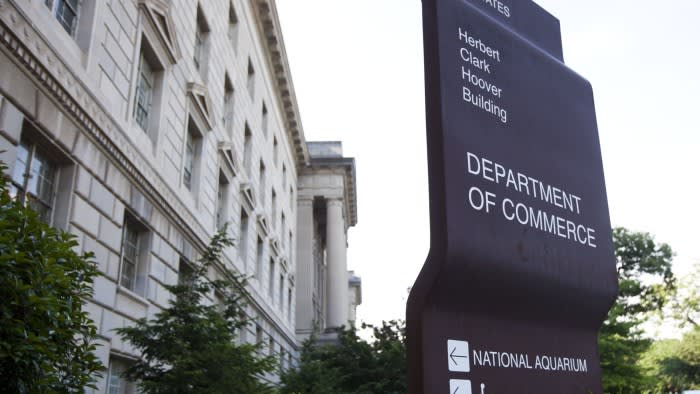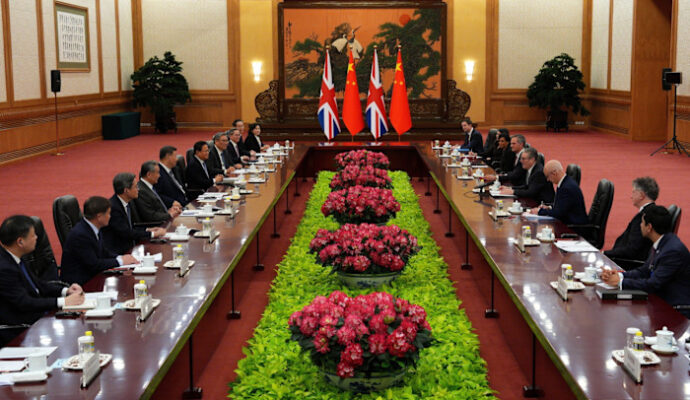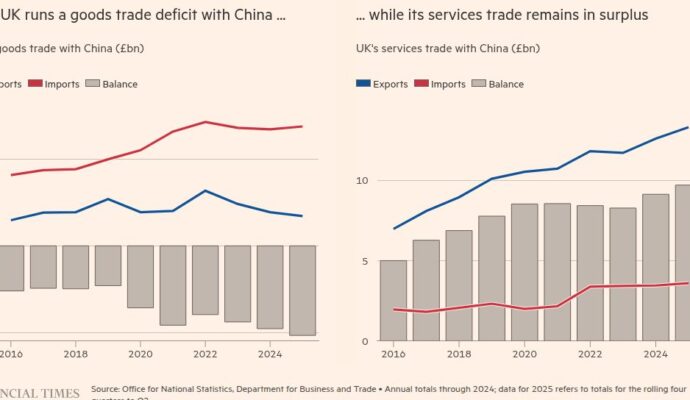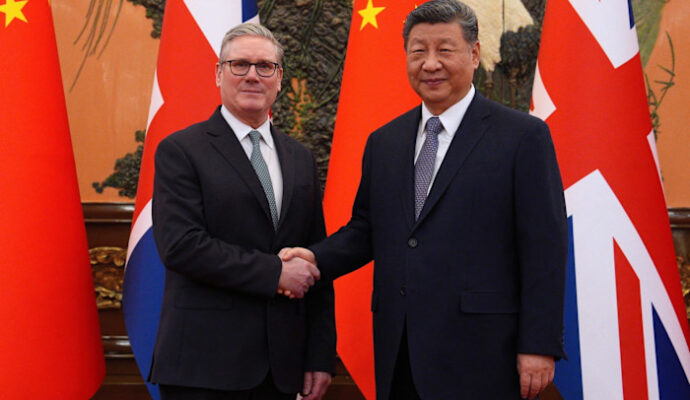
Unlock the White House Watch newsletter for free
Your guide to what Trump’s second term means for Washington, business and the world
Donald Trump’s administration has tightened export controls on Chinese companies to make it harder to circumvent existing rules designed to slow China’s ability to develop advanced semiconductors.
The US commerce department on Monday said subsidiaries of groups named on the government’s “entity list”, a compilation of foreign entities and individuals subject to export controls, would be automatically added to the blacklist.
US companies require a licence to export to groups on the list. In many cases, licenses are denied for exports to Chinese groups that are listed.
The new rule does not single out China. But among the targets are subsidiaries of Chinese chipmakers including Huawei and Semiconductor Manufacturing International Corporation.
The commerce department said it aimed to close a loophole that made it harder to target subsidiaries of groups using “diversionary schemes” to deceive exporters.
Chris McGuire, a former official with the National Security Council and in the state department in the Joe Biden and Trump administrations, said the rule was a “very needed correction to a broken part of our export control system”.
“It was illogical that exports to subsidiaries of companies on the entity list were permitted unless the US government also specifically blacklisted the subsidiary,” McGuire said. “This change will require exporters to do more due diligence on their buyers, which is wholly appropriate.”
The new rule is one of the first actions the Trump administration has taken to tackle concerns about China obtaining US technology that could be used to help modernise the People’s Liberation Army. It comes one month before the president is expected to meet China’s leader Xi Jinping at the Asia-Pacific Economic Cooperation forum in South Korea.
China’s commerce ministry said the new regulation was “extremely malicious” and “yet another typical example of the US generalising the concept of national security and abusing export controls”.
The new rule applies to companies that are 50 per cent or more owned by groups on the entity list. Gregory Allen, an export control expert at the Center for Strategic and International Studies think-tank, said it was a “massive change” as long as the rule was implemented in a straightforward manner without loopholes and there was adequate enforcement.
“If the due diligence requirements are so lax that they make it so that companies can almost never be found to be guilty of negligence or wilful blindness, then the law probably won’t change much corporate behaviour,” Allen cautioned.
A preliminary analysis by WireScreen, a group that analyses Chinese companies, found the new rule would affect thousands of subsidiaries of Chinese state-owned groups and other businesses.
One former US government official said the new rule meant “the days of limited due diligence and plausible deniability are over for US business”. He added companies would have to dig deeper into complex ownership structures and indirect measures of control, including shared board members, co-located offices and links to Communist party ties.
But he warned the focus on equity ownership meant the US was “still leaving the back door and windows wide open”.
The former official said Chinese groups such as Huawei and SMIC had restructured to avoid US rules and had chipmaking facilities that they “don’t technically own through shell companies, shared infrastructure, personnel and party ties”.
The commerce department has also frozen some big actions against China. The Financial Times reported earlier this year that it was holding off adding Chinese memory chipmaker ChangXin Memory to the entity list to avoid any negative impact on US-China trade negotiations.
Additional reporting by Ryan McMorrow in Beijing


